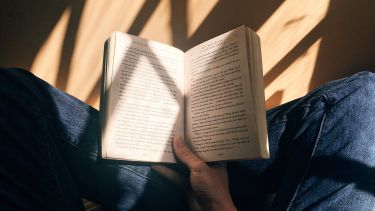The Seven Husbands of Evelyn Hugo by Taylor Jenkins Reid: Glitz, glamour, bisexuality and happy queer endings
I have just completed The Seven Husbands of Evelyn Hugo and all I can say is wow. Taylor Jenkins Reid continues to prove her mastery of story writing and character building in this Hollywood set novel about serial monogamist and icon, Evelyn Hugo.

I’m bisexual. Don’t ignore half of me so you can fit me into a box."
Taylor Jenkins Reid
The Seven Husbands of Evelyn Hugo
Seemingly modelled after movie legend and icon Marilyn Monroe, Evelyn is a woman that makes sure that the limelight is always on her. In this tell all expose, revealed through an interview with journalist Monique, we dive into the scandalous life of this enigmatic superstar.
Calling The Seven Husbands of Evelyn Hugo a masterpiece, this is not an exaggeration. I absolutely adored the story writing, the characters, pacing and story building. Evelyn feels real, authentic, and dynamic, she is a woman who dominates the page and draws you into her life with promise of glamour, sex, romance, and sacrifice.
The novel follows Monique, a young writer who has been personally requested by Evelyn to write a biography about her life and finally reveal the saucy, the scandalous and the vulnerable. Through Evelyn, we get unabashed insight into the often dark and exploitative world of Hollywood and the silent suffering of the women who dared to venture within.
Sexual exploitation and domestic violence are aspects which Jenkins does not shy away from exploring and the reality of Evelyn’s rise to fame is anything but glamorous or endorsed. Instead, Jenkins showcases the real and the raw, the often difficult and traumatic methods women have to implore to reach the top which their male counterparts benefit from their exploitation. The book deals with serious issues women both in the 1950s and current era face and it does so in a way that is impactful and sensitive.
Now, the book is broken down and revealed in various parts of Evelyn’s life, all of which begin with the marriage to one of her seven husbands. We follow Evelyn’s life as she joins in matrimony with a variety of men, from the worst men imaginable to the loveliest to the worst once again.
When it comes to men Evelyn does not have much luck; however, the men are not the main romantic subplot of the novel. It is the love story between Eveyln and her co-star and lover Celia St. James. The title purposely misleads you into believing Evelyn is a serial monogamist and promiscuous dater.
However, the opposite is true, in this novel we are given bisexual representation and lesbian representation as Evelyn and Celia navigate restrictions of queer relationships in the 1950s as they hide their love from one another from the watchful and judgmental public eye.
The novel showcases other queer characters such as Evelyn’s close friend and husband number five, Harry Cameron and his long-term boyfriend. Jenkins makes it clear that she is not interested in ambiguity when it comes to character’s sexualities. Evelyn claims herself as a bisexual woman and does not allow labels to divide her in order to fit into a binary, Harry is in a long-term monogamous relationship and Celia and Evelyn share a clear sexual relationship. There is no polite or ashamed censoring nor does the book shy away from bringing queer issues to the surface.
While on the topic of queer relationships, I would like to mention my favourite aspect of the novel, that being the presence of happy queer endings. Too often have queer novels ended in the tragic death of one or more the main characters, allowed their characters to be abused and tortured for the sake of ‘reality’ and denied readers catharsis (I’m looking at you A Little Life).
However, in The Seven Husbands, we get our happy ending, we are allowed to bask in the glory of Evelyn and Celia’s relationship as it spans over their lifetimes. Sure, there is heartbreak and disappointment, but these are three dimensional characters, they are not going to be perfect or get it right in their 20s, or even their 30s, but what makes it worthwhile is the knowledge that their hearts are bigger than their egos and their love, stronger than their conflicts. These two find their way to each other every time and it is beautiful.
As readers, we need positive endings for queer characters, not every novel needs to end in the tragic murder of a character, a hate crime or AIDS, queer readers need to see themselves represented positively. Straight novels are given the often overlooked luxury of happy endings all the time, but this is not a gift queer readers are allowed often.
It is difficult being part of the LGBTQAI+ community, but it’s even harder when forms of escapism such as novels do not allow readers to disengage from the stress of reality and immerse themselves in a world where love prevails for people they identify with. Representation is not just seeing people like yourself in media and books, but also seeing those people succeed and be happy.
The Seven Husbands of Evelyn Hugo is magnificent. If you’re like me and first came across the novel because of TikTok, then believe the hype, it really is that good.
I found myself wishing Evelyn was a real person and restraining myself from trying to look up her movies and interviews - a Little Women rendition with Evelyn and Celia is all I want for Christmas and my birthday, forever. It is hard to imagine such a complex and enigmatic person is not reaI.
I read this book a while ago and I cannot stop thinking about it. All I can say is read it, you won’t be disappointed.
Written by Valentia Adarkwa-Afari, Postgraduate English Literature on 7 October 2021.
